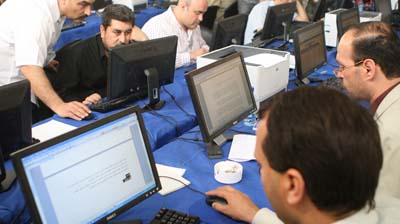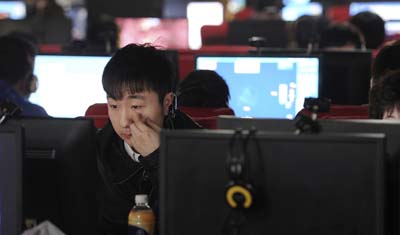State-sponsored attacks: open season on online journalists
The last few weeks have offered the strongest indications yet that nation-states are using customized software to exploit security flaws on personal computers and consumer Internet services to spy on their users. The countries suspected include the United States, Israel, and China. Journalists should pay attention–not only because this is a growing story, but because…
Computer crime laws belie Thai claim to modern society
At online discussion sites all over the world, comments are posted on the Web as soon as they are written. People argue, inform, express anger, and voice fears. Some say things in the heat of the moment that they might go on to regret. Others are elliptical and obscure. The enabling of such conversations is…

Sina ‘information credit score’ restricts Weibo users
Sina’s Twitter-like microblog service Weibo has released new guidelines to restrict users who share banned content, according to international news reports. It’s the first time such guidelines target users who adopt puns, homonyms, and other veiled references to discuss censored news stories without using keywords on the propaganda department’s blacklist, the reports said.

Don’t get your sources in Syria killed
Because foreign journalists have been virtually banned from Syria during the uprising against Bashar al-Assad’s regime, news coverage has relied heavily on citizen journalists and international reporters working with sources inside the country. Syrians who communicate with foreign news media run the risk of being threatened, detained, tortured, or even killed.

Chinese microblog regulates, suspends users–again
Pity those of us who monitor the ups and downs of China’s popular microblog platform, Sina Weibo. For every story its users spread in defiance of local censorship, there follows a clampdown. Whether it’s the latest strike against rumors, or real name registration, or newly banned keywords, there’s always another restriction in the works as…

Chen Guangcheng reporting censored, obstructed
New York, May 3, 2012–Chinese security officials’ ongoing obstruction of foreign and domestic journalists covering dissident Chen Guangcheng is a worrying sign for supporters trying to secure his safety, the Committee to Protect Journalists said today. Authorities in Chen’s native Shandong province have kept the blind, self-taught lawyer isolated from the media since September 2010.

Most censored nations each distort the Net in own way
One big reason for the Internet’s success is its role as a universal standard, interoperable across the world. The data packets that leave your computer in Botswana are the same as those which arrive in Barbados. The same is increasingly true of modern mobile networks. Standards are converging: You can use your phone, access an…
China’s media conditions threaten Chen Guangcheng
The battle over blind Chinese activist Chen Guangcheng’s freedom and well-being is a battle over information. Both Chinese and U.S. officials are trying to spin the story their way. A few activists and media claim to speak for Chen, and in China’s anti-press environment they are putting themselves at risk. Direct interviews with the man…
